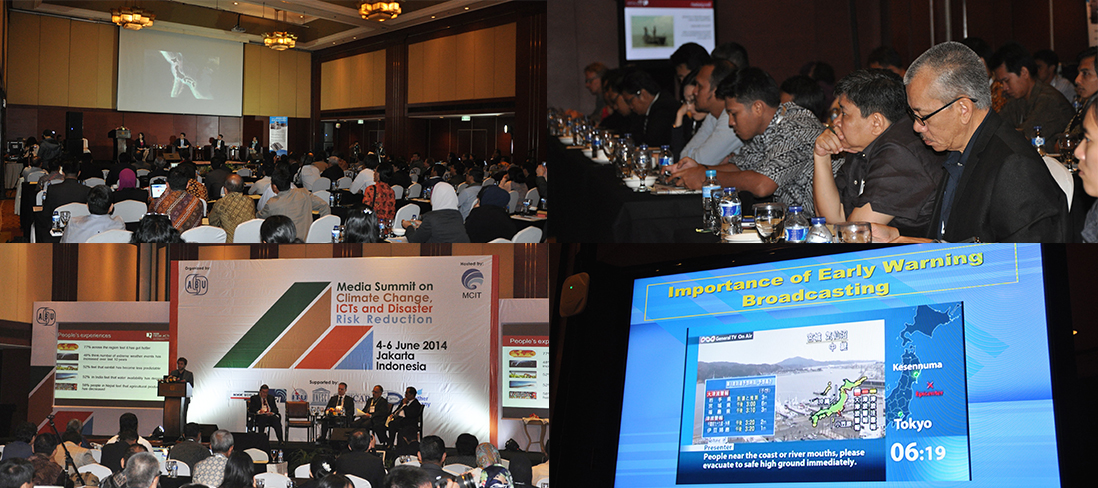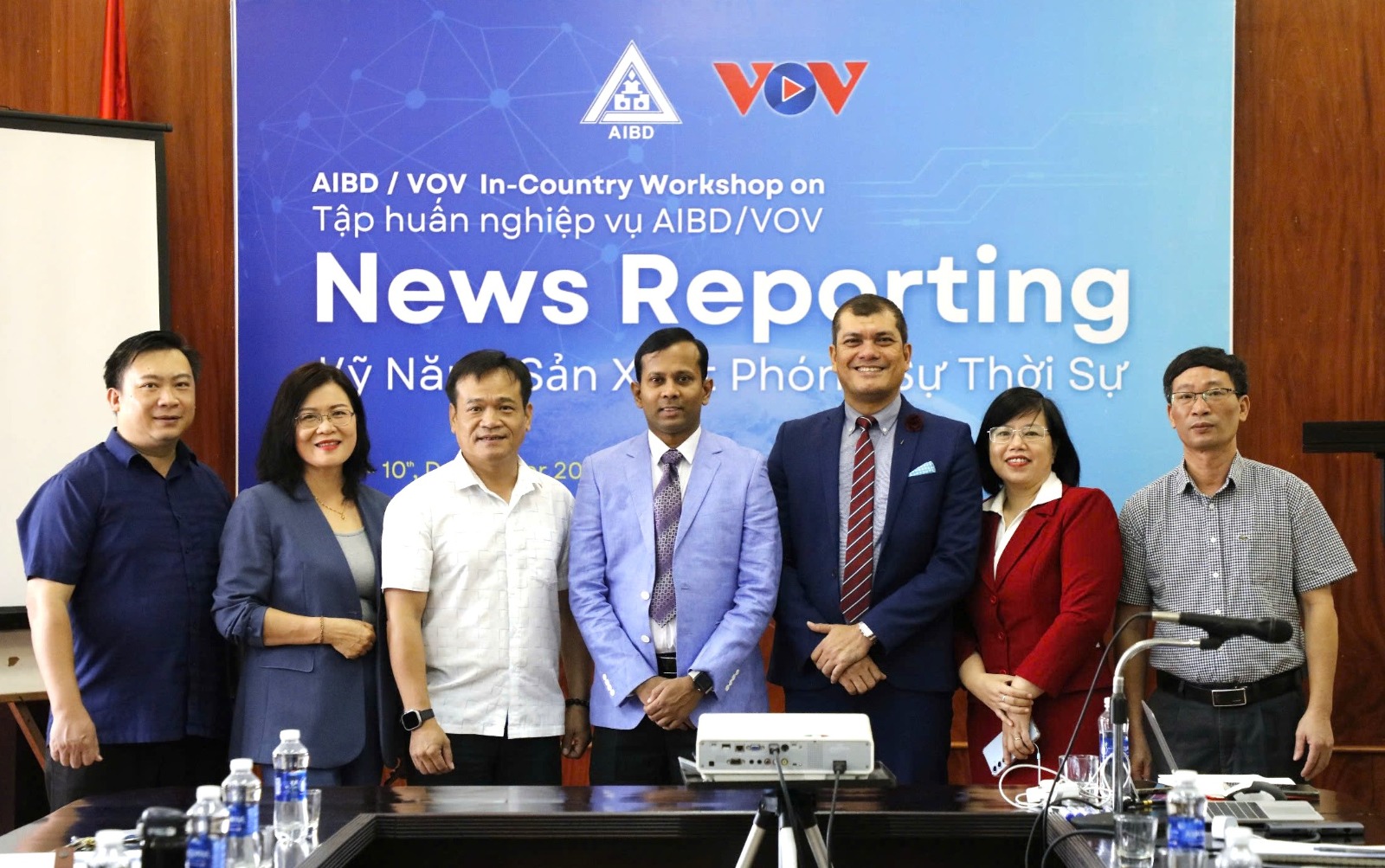
Media Summit on Climate Change, ICTs and Disaster Risk Reduction
The Media Summit on Climate Change, ICTs and Disaster Risk Reduction organised by the Asia-Pacific Broadcasting Union (ABU) and hosted by the Ministry of Communication and Information Technology (MCIT) took place from 4 to 6 June 2014 in Jakarta, Indonesia.
The Media Summit on Climate Change, ICTs and Disaster Risk Reduction organised by the Asia-Pacific Broadcasting Union (ABU) and hosted by the Ministry of Communication and Information Technology (MCIT) took place from 4 to 6 June 2014 in Jakarta, Indonesia.

The first day was dedicated to pre-summit sessions mostly focused on emergency reporting of Japan Broadcasting Corporation (NHK) during the tsunami in Japan in 2011, followed by emergency response and disaster risk reduction in Indonesia and the role of media in disaster preparedness.
The importance of early warning was stressed and it needs a perfect coordination between the local authorities and the media, through the weather and climate tools which are at their disposal.
Otherwise, if communicating before, during and after a disaster is mandatory, informing people during ordinary times is necessary in order to build a safer society. Thus, NHK is constantly reporting to the audience about the potential dangers and has improved their ways to communicate by learning from the past disasters.
It shows that the role of the media is more than crucial in promoting the awareness of the public: information can save life!
The official launching of the Summit – in presence of Mr. Tifaful Sembiring, Minister of Communication and Information Technology and Professor Doctor Boediono, Vice President of the Republic of Indonesia – was held on 5 June, which is also the World Environment Day.
The Summit raised the global awareness of the media and the crucial importance of broadcasters on climate change issue.

Over the past years, the Asia-Pacific faced many disasters: floods in Thailand, hurricane in the Philippines, earthquake in China and tsunami in Japan.
Consequently, the necessity to offer accurate and consistent information to the audience, to be able to communicate efficiently and to deal with emergency situations were the key points raised during the Summit, which aimed to reinforce broadcaster’s responsibility to reach out to the community.
Social media is part of the solution but it is not enough and one of the major goals of broadcasters is and will be to inform, educate and warn the people through messages that audience can understand.
Geraldine Mouche, AIBD Programme Manager represented the Institute at the Summit.




